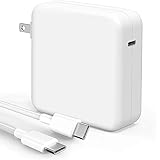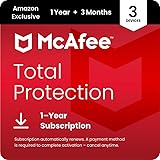
Are you looking for ways to pay off your mortgage faster and reduce your mortgage term? By implementing the right strategies, you can accelerate your mortgage repayment and achieve financial freedom sooner. Paying off your mortgage early not only provides financial stability but also saves you money on interest in the long run. In this article, we will explore effective tips and techniques for paying off your mortgage quick
Key Takeaways:
- Refinancing to reduce interest rates can help shorten your loan term and lower monthly payments.
- Making extra mortgage payments, such as paying an extra 1/12 each month or rounding up your monthly payment, can significantly reduce the term of your loan.
- Prepaying in the beginning of your loan when interest is highest can save you money on interest payments.
- Using windfalls, such as tax returns or bonuses, to make additional mortgage payments can help you pay off your mortgage faster.
- Paying off your mortgage early can provide financial stability, save you money on interest, and give you the freedom of being debt-free.
Refinancing to Reduce Interest
Refinancing your mortgage can be a smart financial move, especially when interest rates are low. By refinancing, you have the opportunity to reduce the amount of interest you pay over the life of your loan, lower your monthly payments, and potentially shorten your loan term. Here’s how it works:
- Lowering the interest rate: When you refinance your mortgage, you have the chance to secure a lower interest rate than what you currently have. A lower interest rate means that a smaller percentage of your monthly payment will go towards interest, allowing you to pay off the principal balance faster.
- Choosing a shorter loan term: Another option when refinancing is to select a significantly shorter loan term. For example, if you currently have a 30-year mortgage, you may choose to refinance to a 15-year mortgage. Shorter loan terms typically come with lower interest rates and can help you pay off your mortgage more quickly.
Refinancing to reduce interest can offer several benefits. Not only can it save you money over the life of your loan, but it can also help you build equity in your home more quickly. Additionally, if you’re struggling with your monthly payments, refinancing to lower your interest rate can result in more manageable monthly payments.
Before refinancing, it’s important to evaluate your current financial situation and consider the costs associated with refinancing, such as closing costs and fees. It’s also advisable to shop around and compare offers from different lenders to ensure you’re getting the most favorable terms.
Real-Life Example:
By refinancing their mortgage, the Smith family was able to reduce their interest rate from 4.5% to 3.25%. This small decrease in interest rate resulted in significant savings over the life of their loan. Not only did they save thousands of dollars in interest, but they were also able to pay off their mortgage seven years earlier than originally planned.
| Before Refinancing | After Refinancing | |
|---|---|---|
| Loan Amount | $300,000 | $300,000 |
| Interest Rate | 4.5% | 3.25% |
| Loan Term | 30 years | 23 years |
| Monthly Payment | $1,520 | $1,600 |
| Total Interest Paid | $247,220 | $122,900 |
| Loan Payoff Date | 2048 | 2041 |


Refinancing allowed the Smith family to significantly reduce their total interest paid and shorten their loan term. Despite a slightly higher monthly payment, the long-term savings were well worth it.
When considering refinancing to reduce interest, it’s essential to consult with a trusted mortgage professional who can guide you through the process and help you determine if it’s the right choice for your specific financial goals and circumstances.
Making Extra Mortgage Payments
Making extra mortgage payments is a powerful strategy to reduce the term of your loan and save money on interest. By informing your lender to apply the extra payments to the principal, you can make substantial progress towards paying off your mortgage faster.
Here are some budget-friendly strategies to help you make those extra mortgage payments:
- Rounding up your monthly payment: One simple and effective way to make extra mortgage payments is by rounding up your monthly payment. For example, if your monthly payment is $1,200, round it up to $1,250 or $1,300. That extra amount goes directly to reducing the principal and shortening the loan term.
- Using the dollar-a-month strategy: Another approach is to add an extra dollar to your mortgage payment each month. While it may seem small, over time, those extra dollars can add up and make a significant impact on your mortgage term.
- Making an extra mortgage payment each year: Divide your monthly mortgage payment by 12 and add that amount to your regular monthly payment. By making one extra mortgage payment each year, you can accelerate your loan payoff and save thousands of dollars in interest.
Implementing these strategies can make a substantial difference and help you pay your mortgage faster. Take a look at the example below to see the potential savings:
| Loan Amount | Interest Rate | Loan Term | Monthly Payment | Savings with Extra Payments |
|---|---|---|---|---|
| $200,000 | 4% | 30 years | $954.83 | $47,000 |
| $200,000 | 4% | 28 years | $954.83 + $171.96 | $74,000 |
“By making extra mortgage payments, you can potentially save over $47,000 in interest payments and pay off your loan two years earlier.”
Financial Freedom through Extra Mortgage Payments
By incorporating extra mortgage payments into your budget, you can achieve financial freedom and secure a brighter future. Paying off your mortgage early not only saves you money on interest but also provides peace of mind knowing that you own your home outright.
Take control of your mortgage repayment journey and start making those extra payments today. In the next section, we will explore another effective strategy: prepaying in the beginning of the loan.
Prepaying in the Beginning of the Loan
One effective strategy for paying off your mortgage faster is prepaying in the beginning of the loan. By utilizing this mortgage prepayment option, you can make a significant impact on reducing the term of your mortgage and saving money in the long run.
During the first few years of your mortgage, the majority of your monthly payments go towards paying off the interest rather than the principal. This means that prepaying when the interest is the highest can have a greater effect on reducing your mortgage term.
It’s important to understand that interest is compounded, meaning that each month’s interest is determined by the total amount owed, including both the principal and the interest. By prepaying and reducing the total amount owed, you effectively reduce the interest that accumulates over time.
To better illustrate the impact of prepaying in the beginning, consider the following example:
| Year | Principal | Interest | Total Payment |
|---|---|---|---|
| 1 | $5,000 | $3,000 | $8,000 |
| 2 | $7,000 | $2,500 | $9,500 |
| 3 | $8,500 | $2,000 | $10,500 |
In this example, prepaying $5,000 towards your mortgage in the first year reduces the principal and the subsequent interest payments. As a result, you can see that the total payment decreases significantly each year, ultimately reducing the mortgage term.
By prepaying in the beginning of the loan, you not only reduce the overall interest paid over the life of the mortgage, but you also accelerate the repayment process. This can help you achieve your goal of being mortgage-free sooner and save you thousands of dollars in interest payments.
Remember, prepaying in the beginning of the loan may require careful budgeting and financial planning. It’s important to evaluate your individual circumstances and consider the impact on your overall financial goals.
Summary:
Prepaying in the beginning of the loan can have a significant impact on reducing your mortgage term and saving money on interest. By taking action early, when the interest is highest, you can effectively reduce the total amount owed and minimize the interest that accrues over time. Consider prepaying as a strategic way to accelerate your mortgage repayment and achieve your goal of being debt-free.

Using Windfalls to Make Additional Payments
Unexpected windfall payments, such as holiday bonuses, tax returns, or credit card rewards, can provide a golden opportunity to make additional mortgage payments. By allocating these extra funds directly to your mortgage company, you can take significant strides towards reducing the term of your mortgage and avoiding future interest payments. The best part is that utilizing windfalls doesn’t cut into your regular monthly budget, allowing you to maximize your savings without compromising your financial stability.
When windfall payments come your way, resist the temptation to splurge on unnecessary expenses and instead seize the chance to accelerate your mortgage payoff. By making extra payments, you can not only shorten your mortgage term but also save a substantial amount of money on interest over the life of the loan. This can potentially free up more financial resources in the long run for other goals and dreams.
Let’s take a closer look at some examples of windfalls and how they can contribute to your mortgage payoff:
- Holiday Bonuses: If your employer provides a bonus during the holiday season, consider diverting a portion or the full amount towards your mortgage payment. It’s a fantastic way to invest in your future while ensuring financial security for you and your family.
- Tax Returns: A tax return can be a windfall that surprisingly lands in your bank account. Instead of splurging on frivolous indulgences, consider using part or all of your tax refund to make a lump sum mortgage payment. This can be a strategic move to reduce your mortgage term and save on overall interest.
- Credit Card Rewards: If you have a credit card that offers cashback rewards or points that can be redeemed for statement credits, consider applying those rewards towards your mortgage payment. While it may not be a substantial amount, every little contribution helps in the journey towards becoming mortgage-free.
By channeling windfalls directly towards your mortgage, you can stack up additional payments without straining your monthly budget. This can have a significant impact on your mortgage term, bringing you closer to financial freedom and the relief of being mortgage-free.
Remember, unexpected windfall payments are a unique opportunity to make a substantial dent in your mortgage balance. Seize the moment, prioritize your mortgage payoff, and let windfalls pave the way to a brighter financial future. Take control of unexpected income and harness its potential to accelerate your journey towards a reduced mortgage term.
Your Mortgage Payoff Action Plan:
- Evaluate your expenses and identify potential areas where windfall payments can be sourced.
- Create a plan to allocate windfall funds directly towards your mortgage payment without affecting your regular monthly budget.
- Engage with your mortgage company to ensure the windfall payments are applied correctly to reduce your principal balance.
- Monitor your progress regularly and celebrate each milestone achieved in your mortgage payoff journey.
Remember, every additional payment made brings you closer to the ultimate goal of mortgage freedom. Stay committed, disciplined, and proactive in your approach, and watch as windfalls transform into powerful agents of financial liberation.
With these strategies, you can pay your mortgage faster
Achieving financial freedom and paying off your mortgage early can be within your grasp. By implementing strategies such as refinancing, making extra mortgage payments, prepaying in the beginning, rounding up, and using windfall payments, you can save money on interest and shorten your mortgage repayment term.
Imagine the peace of mind that comes with being debt-free and having more financial flexibility. With careful planning and discipline, you can free up your income, save on interest, and redirect those funds toward achieving your goals.
Start taking action today and regain control of your financial future. Pay off your mortgage early, achieve financial freedom, and save money on interest. You have the power to pave the way towards a brighter financial outlook.
FAQ
What are some strategies to pay off your mortgage faster?
Some strategies to pay off your mortgage faster include refinancing to reduce interest, making extra mortgage payments, prepaying in the beginning of the loan, rounding up payments, and using windfalls to make additional payments.
How can refinancing help reduce interest on my mortgage?
Refinancing your mortgage, especially when interest rates decline, can potentially reduce the amount paid toward interest and shorten your loan term. This can be achieved by lowering the interest rate or choosing a significantly shorter loan term.
What are budget-friendly strategies for making extra mortgage payments?
Budget-friendly strategies for making extra mortgage payments include making an extra mortgage payment each year by paying 1/12 extra each month, rounding up your monthly payment, and using the dollar-a-month strategy. By informing your lender to apply the extra payments to the principal, you can save money on interest.
How does prepaying in the beginning of the loan reduce the term of the mortgage?
This is a mortgage prepayment option that allows you to prepay in the beginning of the loan. This clever strategy can have a big impact on reducing the term of your mortgage. Since the majority of monthly payments in the first few years go towards interest, prepaying when interest is highest can save you money in the long run. Interest is compounded, so each month’s interest is determined by the total amount owed.
How can I use windfalls to make additional mortgage payments?
Utilizing unexpected windfalls, such as holiday bonuses, tax returns, and credit card rewards, can help you make additional mortgage payments. By sending these extra funds directly to your mortgage company, you can reduce the term of your mortgage and avoid future interest payments. This doesn’t cut into your regular monthly budget and can provide significant savings.
Why should I pay off my mortgage early?
Paying off your mortgage early can provide financial stability, save you money on interest, and give you the freedom of being debt-free. By implementing strategies such as refinancing, making extra mortgage payments, prepaying in the beginning, and using windfall payments, you can shorten your mortgage repayment term and achieve your goal of paying off your mortgage faster. Start taking action today to reduce your home loan burden and pave the way towards financial freedom.
Source Links
- https://www.nationwide.com/lc/resources/home/articles/pay-off-mortgage-faster
- https://money.usnews.com/loans/mortgages/articles/how-to-pay-off-your-mortgage-faster











